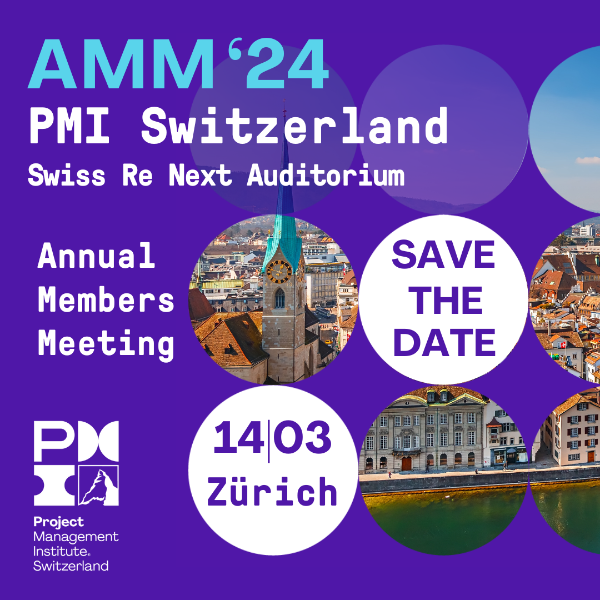Authors: Joanna Keller (PMP), Isabelle Isabelle Noverraz (PMP), Mafalda Amaro (Social Impact & Youth Coordinator)
Powered by the Social Impact & Youth Team 


Embrace the Power of Knowledge: Elevate Your Project Management Skills with PM Talks Series
In the dynamic world of project management, where innovation and adaptability reign supreme, staying ahead of the curve is crucial for success. That's where the PM Talks series emerges as a beacon of knowledge, illuminating the path for project professionals seeking to refine their skills and excel in their endeavors. This initiative is driven by the Social Impact & Youth team, serving the community with the most impactful topics.
A Compendium of Insights, Knowledge Sharing and Community Engagement
The "PM Talks" series is an initiative dedicated to fostering a thriving community of project management enthusiasts. Through a series of thought-provoking webinars on Social Impact, Diversity, Equity & Inclusion, and Sustainability, this platform delivers a wealth of valuable insights to aspiring and seasoned project managers alike, in order for them to thrive. Immerse yourself in a series of webinars led by industry experts who have mastered the art of project management in different areas. These sessions delve into a broad spectrum of topics, from navigating complex projects, to harnessing the power of technology, to enhancing team collaboration.
Empowering Project Professionals
The "PM Talks" series is designed to empower project professionals to navigate the ever-evolving landscape of project management with confidence. Through its comprehensive resources and engaging community, this platform enables individuals to elevate their skills, achieve their goals, and make a lasting impact in their respective fields.
Speakers from different industries, backgrounds and expertise will share their experiences, knowledge and insights with our community.
The first PM Talks from the PMI Switzerland chapter is right around the corner.
Register here
Get ready for invaluable insights, real talks, and some serious "Aha!" moments. This is not your average chat – it's "PM Talks", inspired by Advance's insights!
PMI Switzerland is partnering with Advance, the leading business association for gender equality in Switzerland, a network of 145+ Swiss-based companies committed to achieving equatable representation of women in Management.
Join us for a game-changing conversation on gender equality in business at PM Talks:
🚀 Unlock insights on progress & urgent action
💼 Navigate the leaky leadership pipeline with rising promotions.
🏆 Advance in gender equality metrics in swiss business.
🔄 Explore the changing labor market's impact on corporate norms.
🌟 Learn strategies to close the skilled labor gap & tap into untapped talent.
Our guest speaker:
 Alkistis Petropaki joined Advance as General Manager in 2015. She has more than 20 years of experience in leading positions in well-known Fast Moving Consumer Goods (FMCG) companies such as: L’Oreal, Nestlé, Mövenpick, and Lindt & Sprüngli. Before joining Advance, she was the Country Manager of Yves Rocher in Switzerland. She studied economics and holds an MBA from ESCP-EAP. She also has Master’s Degrees in German literature and Psychology from the University of Athens.
Alkistis Petropaki joined Advance as General Manager in 2015. She has more than 20 years of experience in leading positions in well-known Fast Moving Consumer Goods (FMCG) companies such as: L’Oreal, Nestlé, Mövenpick, and Lindt & Sprüngli. Before joining Advance, she was the Country Manager of Yves Rocher in Switzerland. She studied economics and holds an MBA from ESCP-EAP. She also has Master’s Degrees in German literature and Psychology from the University of Athens.
Alkistis strongly believes in the benefits of mixed-gender teams for society and for organizations, as well as for individuals. With her engagement within Advance, she is convinced she will be able to make an impact in the Swiss economy. Alkistis is married and has two grown-up children.
📆 08.02.2024 🕕 6pm to 7pm📍Online event (Zoom) 🔗 Register Now
Let’s reshape the future of the Swiss workplace using powerful management skills. Secure your spot for an inclusive and thriving environment!








 Alkistis Petropaki joined Advance as General Manager in 2015. She has more than 20 years of experience in leading positions in well-known Fast Moving Consumer Goods (FMCG) companies such as: L’Oreal, Nestlé, Mövenpick, and Lindt & Sprüngli. Before joining Advance, she was the Country Manager of Yves Rocher in Switzerland. She studied economics and holds an MBA from ESCP-EAP. She also has Master’s Degrees in German literature and Psychology from the University of Athens.
Alkistis Petropaki joined Advance as General Manager in 2015. She has more than 20 years of experience in leading positions in well-known Fast Moving Consumer Goods (FMCG) companies such as: L’Oreal, Nestlé, Mövenpick, and Lindt & Sprüngli. Before joining Advance, she was the Country Manager of Yves Rocher in Switzerland. She studied economics and holds an MBA from ESCP-EAP. She also has Master’s Degrees in German literature and Psychology from the University of Athens.